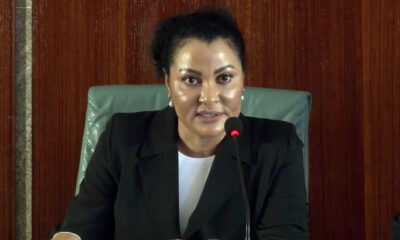News
FG raises committee to resolve Kaduna, NLC face-off

The Federal Government has set up a committee to resolve the dispute between the Kaduna State Government and the Nigeria Labour Congress over the sacking of some workers.
The committee was given 21 days to submit its report to the Federal Ministry of Labour and Employment.
A statement by the Deputy Director, Press and Public Relations of the Federal Ministry of Labour and Employment, Mr Charles Akpan, on Saturday, said that the Minister, Senator Chris Ngige, inaugurated the new committee headed by the Permanent Secretary, Federal Ministry of Labour and Employment, Dr Peter Yemira Tarfa.
The committee has the Secretary to Kaduna State Government, Balarabe Lawal, and Deputy National President of NLC, Najim Hashim, as co-chairmen, while the Director, Trade Union Services and Industrial Relations at the Federal Ministry of Labour and Employment, Mrs Omoabi Akpan, will serve as the Secretary.
The statement quoted Ngige as saying the FG first intervened in the strike initiated by the NLC in Kaduna State in May, with the parties signing a memorandum of understanding to restore peace, noting that intervening in the circumstances made the reconstitution of the committee inevitable.
According to him, the committee is expected to resolve all the issues in dispute between the Kaduna State Government and the NLC.
The minister, who acknowledged that the issues in contention bordered on trade disputes, advised the committee to be guided by the 1999 constitution as amended as well as the Labour laws of the federation.
Ngige explained that downsizing or rightsizing of workforce in any organisation, government or private sector is a redundancy issue, which must be subjected to the principles spelt out in the Trade Disputes Act, Laws of the Federation 2004 Cap L1.
He said, “The law says in Section 20 (A) that ‘in the event of redundancy, every employer shall inform the trade unions or representatives of workers concerned of the reasons for or the extent of their anticipated redundancy.
“Section B equally states that the principles of last-in first-out shall be adopted in the discharge of the category of workers affected, subject to all factors of relative merit including skill, ability and any reliability.
He said, “So, in applying this, we must subject it to the relativity of merit, skill, ability and reliability. If somebody has a forged certificate, he should be asked to go because he didn’t merit the job in the first instance.
“If you go to a nursing home and find somebody working in the ward with a Bachelor’s Degree in History, he stands disqualified because he doesn’t have the skill in the first place. He has to go. So, these are the qualifications that must be noted in this principle of last in, first out. It is not absolute. It has exceptions and qualifications.”
According to the minister, the employer has the right to reduce staff strength of his organisation but is bound by law to negotiate redundancy payment with any discharged worker.
He further stated that there was nothing wrong in Kaduna State Government stopping the expenditure of 96 per cent of its earnings on personnel cost in order to save enough for capital projects, but that it should be done within the ambit of the law.
He informed the committee of the expectations of President Muhammadu Buhari for the speedy return of industrial harmony to Kaduna State, much more at a time the state is challenged by banditry.
“I expect this committee to turn in a report that will ensure lasting peace in Kaduna State. Mr President has asked me to inform you of his expectation that peace returns to Kaduna which has been his state of residence as well as home to many retired generals, permanent secretaries, seasoned administrators, amongst others of Northern Nigeria extraction.
“So, I appeal to you to approach this assignment with conciliation at the back of your mind so that we don’t have a repeat of what happened in May. I use this opportunity to appeal to you as the Minister of Labour, father of labour unions and friend of Kaduna State that we should tread the path of peace. With peace, we can make progress, both as government and as a labour union,” Ngige said.
Kaduna State SSG, Lawal, assured the minister of the state government’s plan for restoration of industrial harmony, adding that Kaduna State was not at war with labour.
In his remarks, the President of NLC, Mr Ayuba Wabba, assured Nigige of labour’s commitment to the resolution of the impasse in Kaduna State.
News
Nigeria will stop fuel importation by June – Dangote
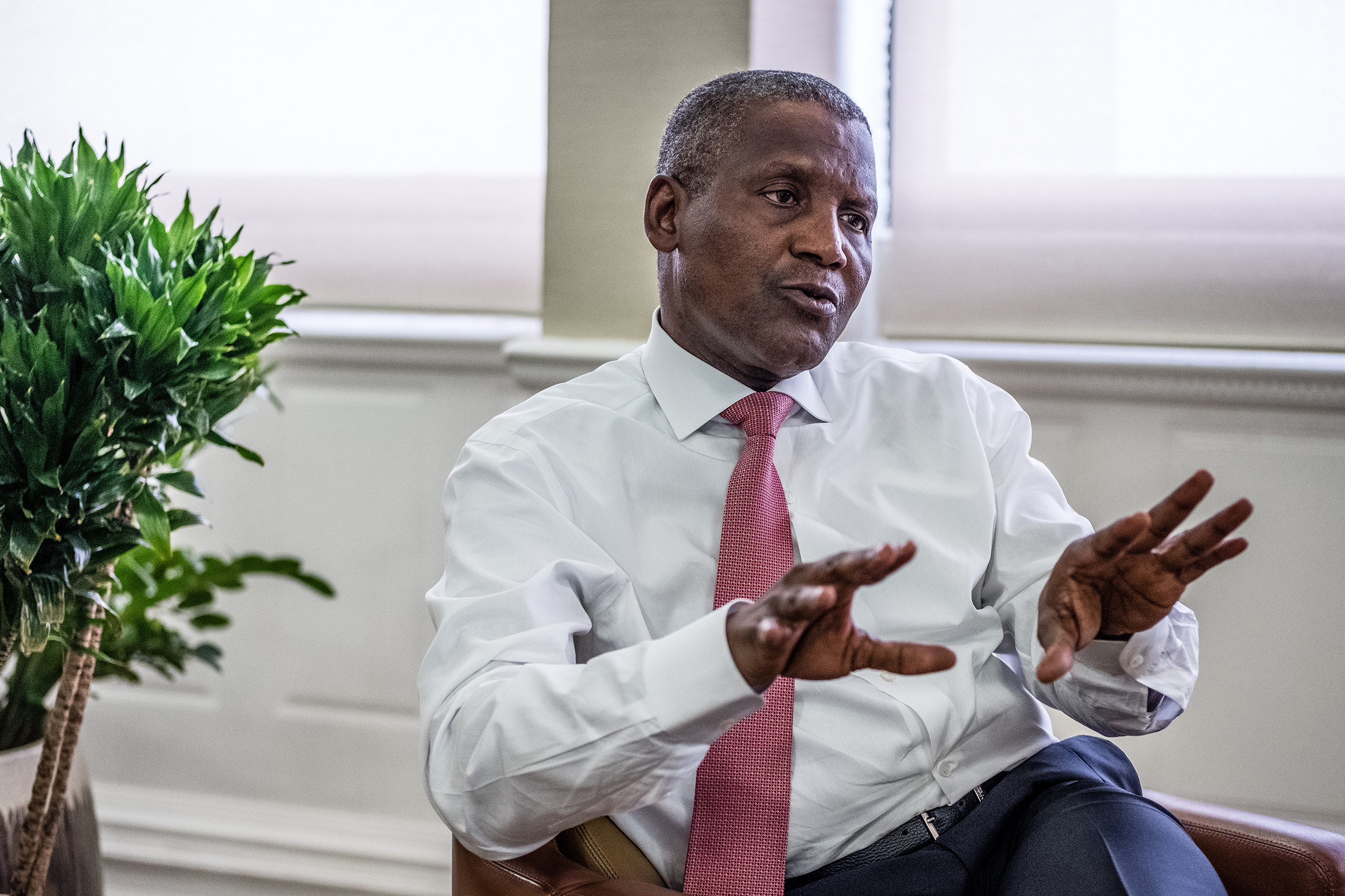
Nigeria will stop fuel importation by June – Dangote
Aliko Dangote, Africa’s richest person, has announced that Nigeria will cease importing petrol by June.
Speaking at the Africa CEO Forum Annual Summit in Kigali, Dangote revealed that his refinery will commence production next month, meeting Nigeria’s petrol needs and eliminating the need for imports.
“Right now, Nigeria has no cause to import anything apart from gasoline and by sometime in June, within the next four or five weeks, Nigeria shouldn’t import anything like gasoline; not one drop of litre,” he said.
The refinery will also produce diesel, aviation fuel, and other essential products, making Africa self-sufficient in these commodities.
READ ALSO:
- Rainstorms kill seven, many others injured
- Olanipekun, Yayale, Elechi, Yusuf Ali, others named higher institutions’ governing council chairmen
- Nearly 10,000 evacuated in Ukraine’s Kharkiv region after Russia attack
With a capacity of 650,000 barrels per day, the refinery will meet the demands of West Africa and beyond.
Dangote emphasized that the refinery will not only focus on petroleum products but also produce polypropylene, polyethylene, base oil, and linear benzyl, raw materials essential for producing detergents and other products.
This will reduce Africa’s reliance on imports and make the continent self-sufficient in these critical products.
Dangote expressed his optimism that within three to four years, Africa will no longer need to import fertilizers, as his refinery will produce urea, potash, and phosphate, meeting the continent’s needs.
The refinery’s second phase is set to begin early next year, further expanding its operations and impact on Africa’s energy landscape.
Nigeria will stop fuel importation by June – Dangote
News
Olanipekun, Yayale, Elechi, Yusuf Ali, others named higher institutions’ governing council chairmen
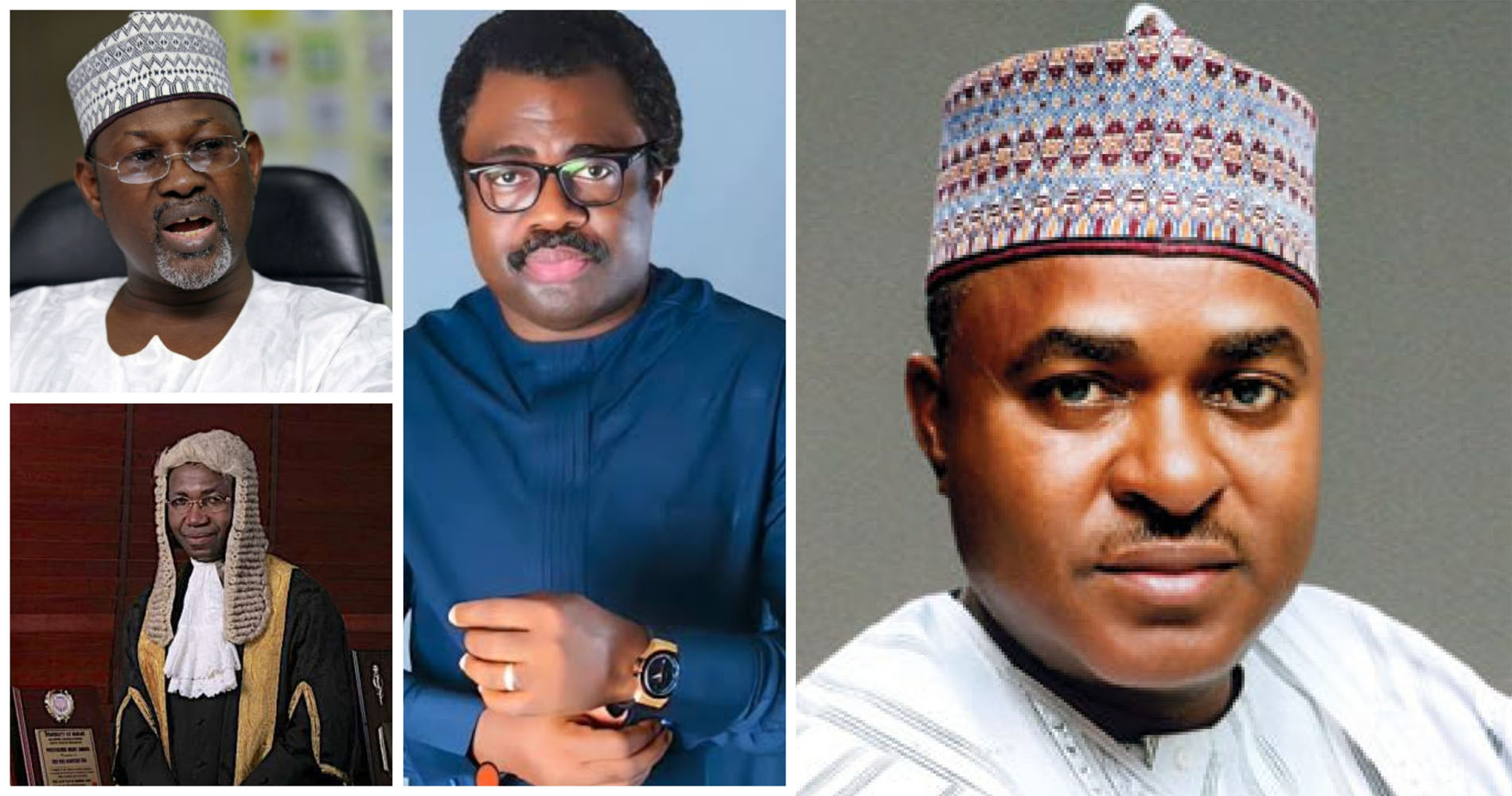
Olanipekun, Yayale, Elechi, Yusuf Ali, others named higher institutions’ governing council chairmen
President Bola Tinubu’s administration has unveiled a list of appointees to the governing councils of 111 federal universities, polytechnics, and colleges of education.
Notable figures among the appointees include former Independent National Electoral Commission (INEC) Chairman, Attahiru Jega; Senior Advocates of Nigeria Wole Olanipekun, former Bauchi governor, Isa Yuguda, and Yusuf Alli.
Others are former National Universities Commission Executive Secretary, Peter Okebukola; and labour activist, Issa Aremu. The individuals have been selected to lead the councils of various academic institutions across the country.
The announcement follows a recent ultimatum issued by the Academic Staff Union of Universities (ASUU), which demanded the Nigerian government address issues such as the alleged illegal dissolution of university governing councils and the continued use of the Integrated Payroll and Personnel Information System (IPPIS) for salary payments.
The Federal Ministry of Education responded by assuring that these concerns were being handled and that the list of council members would be released soon.
The appointments, signed by Permanent Secretary Didi Walson-Jack of the Federal Ministry of Education, include five representatives each for 50 universities, 37 polytechnics, and 24 colleges of education.
READ ALSO:
- Nearly 10,000 evacuated in Ukraine’s Kharkiv region after Russia attack
- Police inspector dismissed over ‘N29.8m theft’, three other officers demoted
- Russia could increase Ukraine attacks, says Zelensky
Specifically, Attahiru Jega has been appointed Chairman of the Governing Council of Usmanu Danfodio University, Sokoto. Wole Olanipekun will chair the University of Lagos, while Yusuf Alli takes on the Federal University of Agriculture, Abeokuta.
Peter Okebukola will lead the University of Port Harcourt, and Issa Aremu will head the Federal College of Education (Technical) in Keana, Nasarawa State while Yuguda will chair the National Open University of Nigeria (NOUN).
Furthermore, former Senator Joy Emordi will lead Alvan Ikoku Federal University of Education in Owerri; and former Secretary to the Government of the Federation, Yayale Ahmed, will head the council of Ahmadu Bello University in Zaria.
Adamu Rasheed, the immediate past Executive Secretary of the NUC, has been appointed to the Federal University of Health Sciences, Otukpo in Benue State.
The new governing council members are scheduled for inauguration and a retreat on May 30 and 31 at the National Universities Commission’s headquarters in Abuja.
In June 2023, President Tinubu dissolved the governing councils of several key government agencies and higher education institutions, a move that sparked criticism from various stakeholders. They argued that the University Miscellaneous Act grants universities and their councils autonomy to self-regulate.
Olanipekun, Yayale, Elechi, Yusuf Ali, others named higher institutions’ governing council chairmen
News
UK lawmaker lauds EFCC, says Africa underestimates its strength
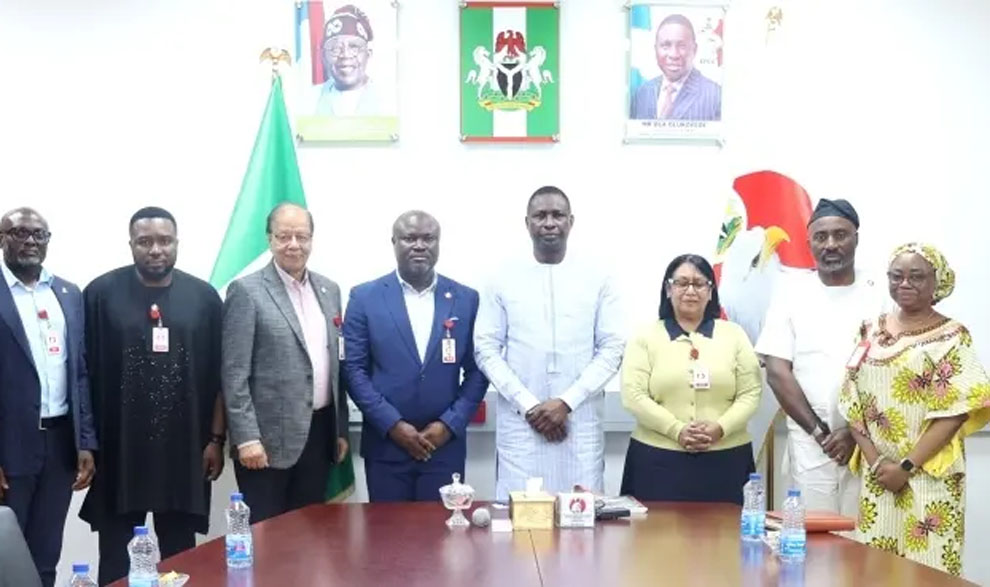
UK lawmaker lauds EFCC, says Africa underestimates its strength
In a significant boost to Nigeria’s anti-corruption efforts, the Economic and Financial Crimes Commission (EFCC) has received international recognition for its tireless work in tackling corruption.
Baroness Verma Sandy of Leicester, a member of the United Kingdom’s House of Lords, has commended the EFCC for its dedication to fighting corruption and promoting good governance in Nigeria.
During a visit to the EFCC headquarters in Abuja on Friday, Baroness Verma Sandy praised the Commission’s new leadership under Executive Chairman, Mr. Ola Olukoyede, for repositioning the organization on the path of professionalism and effectiveness.
She expressed confidence that the EFCC’s efforts would help change the global perception of Africa and build new confidence in the continent.
The Baroness, who led a six-man delegation of the UK-based African Leadership Organisation, acknowledged the EFCC’s efforts in shaping better narratives for Nigeria and praised the Commission’s innovative approaches to tackling corruption.
She emphasized the importance of international collaboration in the fight against corruption and encouraged the EFCC to continue its good work.
Sandy said: “We are so glad to be here. It is important having this organization led by somebody who has brought incredible positive changes to the country. And I want to thank all of your colleagues here for engaging with us today. I believe passionately on the strength of the African Continent. I am not connected at all to Africa, but I have been a champion for a continent that has under-estimated its own strength but has got so much to offer the world. And I think your organization will help change the perceptions and build new confidence. So, I am so pleased and honoured to be here.”
READ ALSO:
- We’re impressed by Tinubu’s security strategies – UK Govt
- Don’t involve Bello’s children in corruption fight, rights group tells EFCC
- Only my party can stop me from contesting 2027 presidential election – Atiku
EFCC Chairman, Mr. Olukoyede, thanked the Baroness and her delegation for identifying with the Commission and acknowledging its efforts.
He reiterated the EFCC’s commitment to tackling corruption and promoting good governance, emphasizing that corruption is a major obstacle to Africa’s development.
He highlighted the Commission’s new focus on prevention and addressing systemic issues that enable corruption, as well as its efforts to stimulate economic growth and prevent foreign exchange sharp practices.
-

 Business3 days ago
Business3 days agoDollar crashes against Naira at official market
-

 News2 days ago
News2 days agoUsing pre-registered SIM card may land you in jail, NCC warns
-

 metro3 days ago
metro3 days agoThree police officers sentenced to life imprisonment in Anambra
-
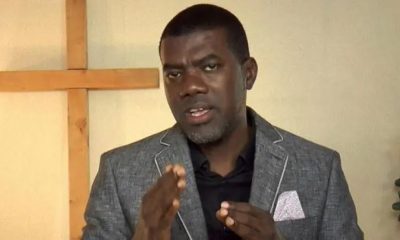
 News3 days ago
News3 days agoWike, Fubara are ego-driven, crude – Reno Omokri
-

 metro1 day ago
metro1 day agoFire guts new NNPCL tank farm in Lagos
-

 International2 days ago
International2 days agoUK says it’s developing radio frequency to blast out drones
-

 News2 days ago
News2 days agoUpdated: Reps condemn assault on Nasarawa female doctor by patient family
-

 News2 days ago
News2 days agoPolice grill Osun monarch, Ataoja of Osogbo, over petition







